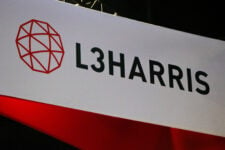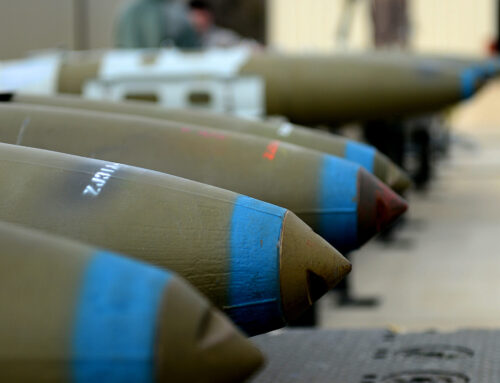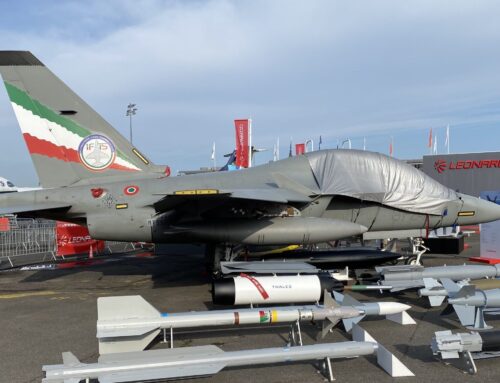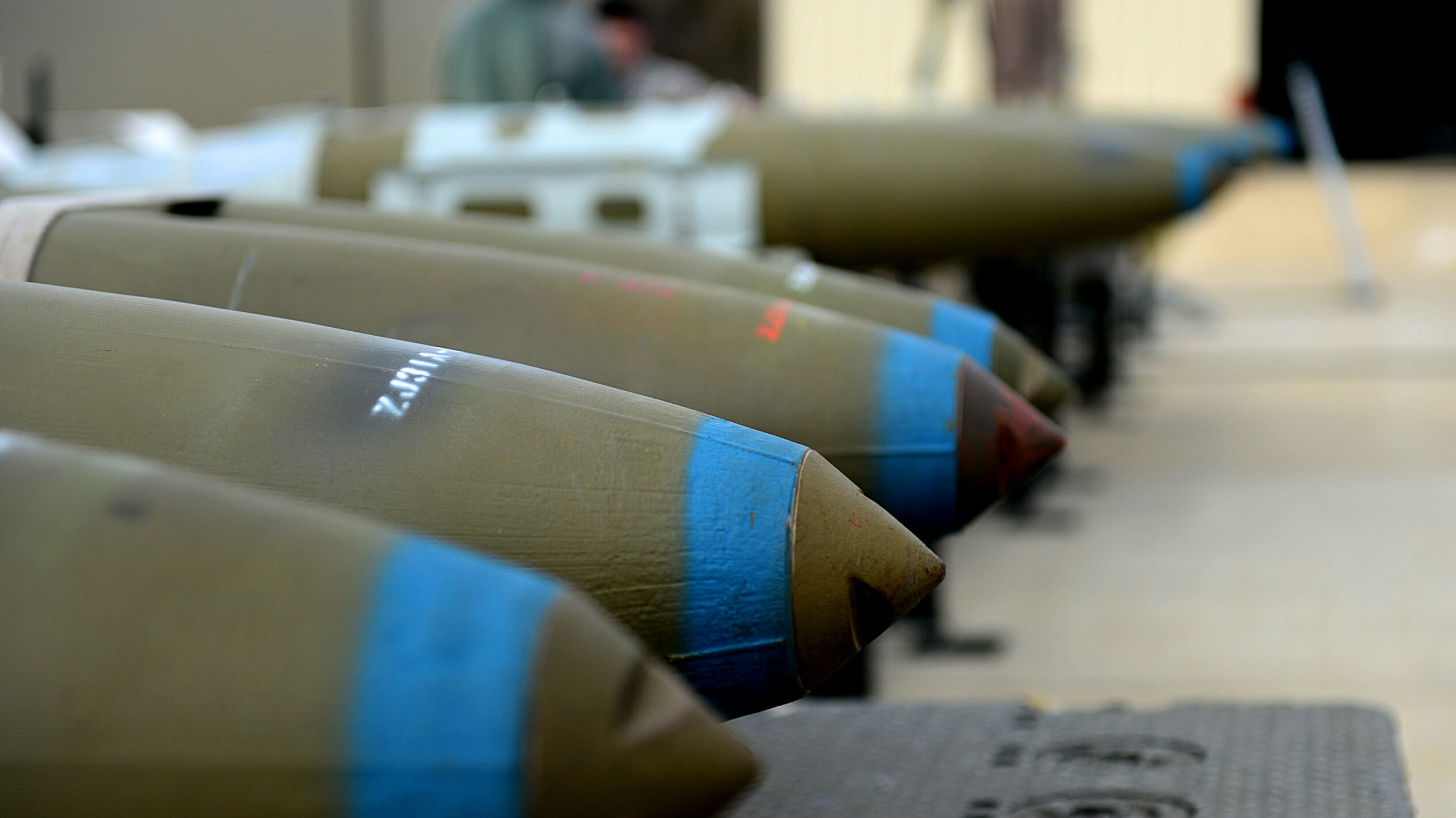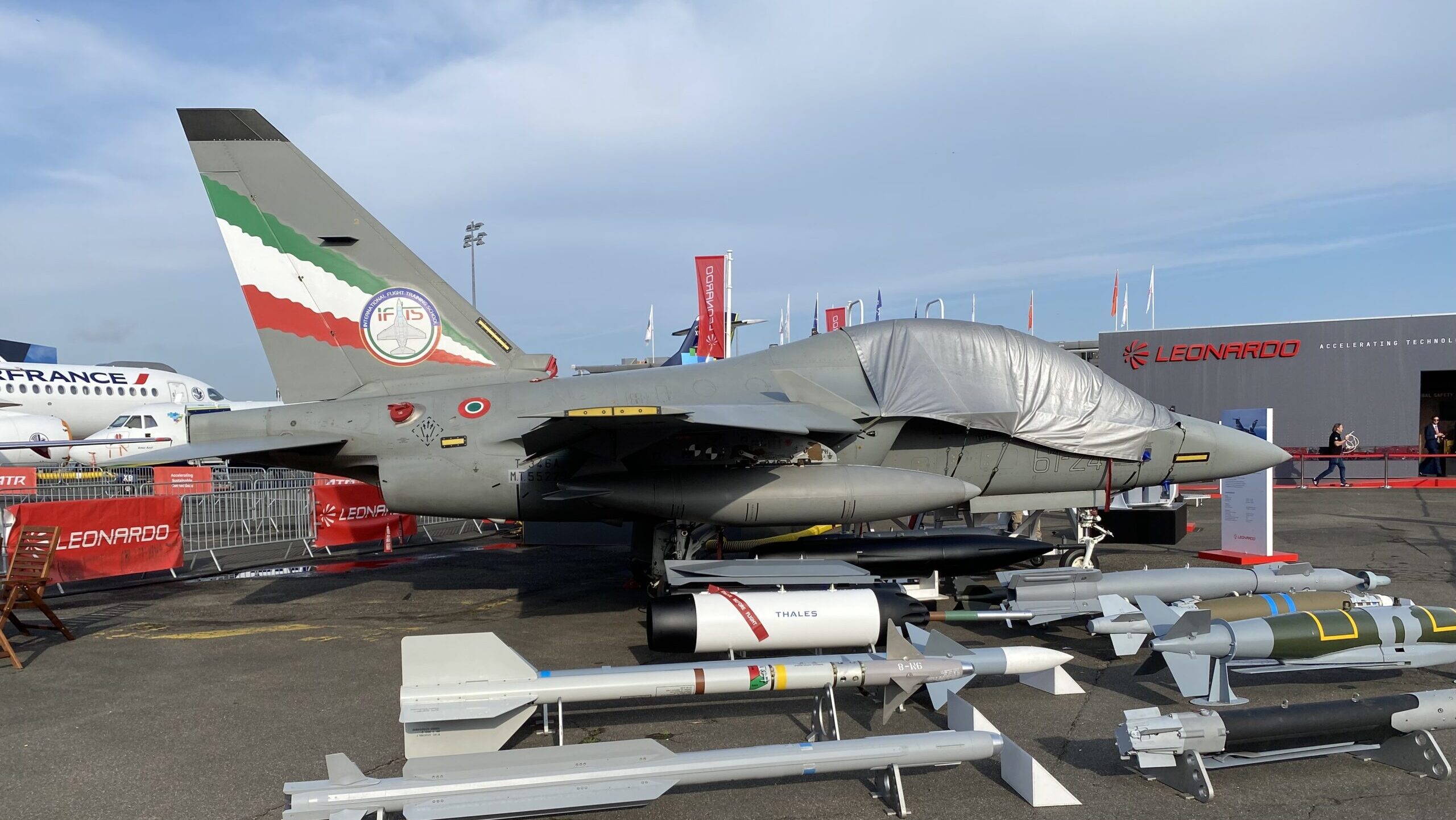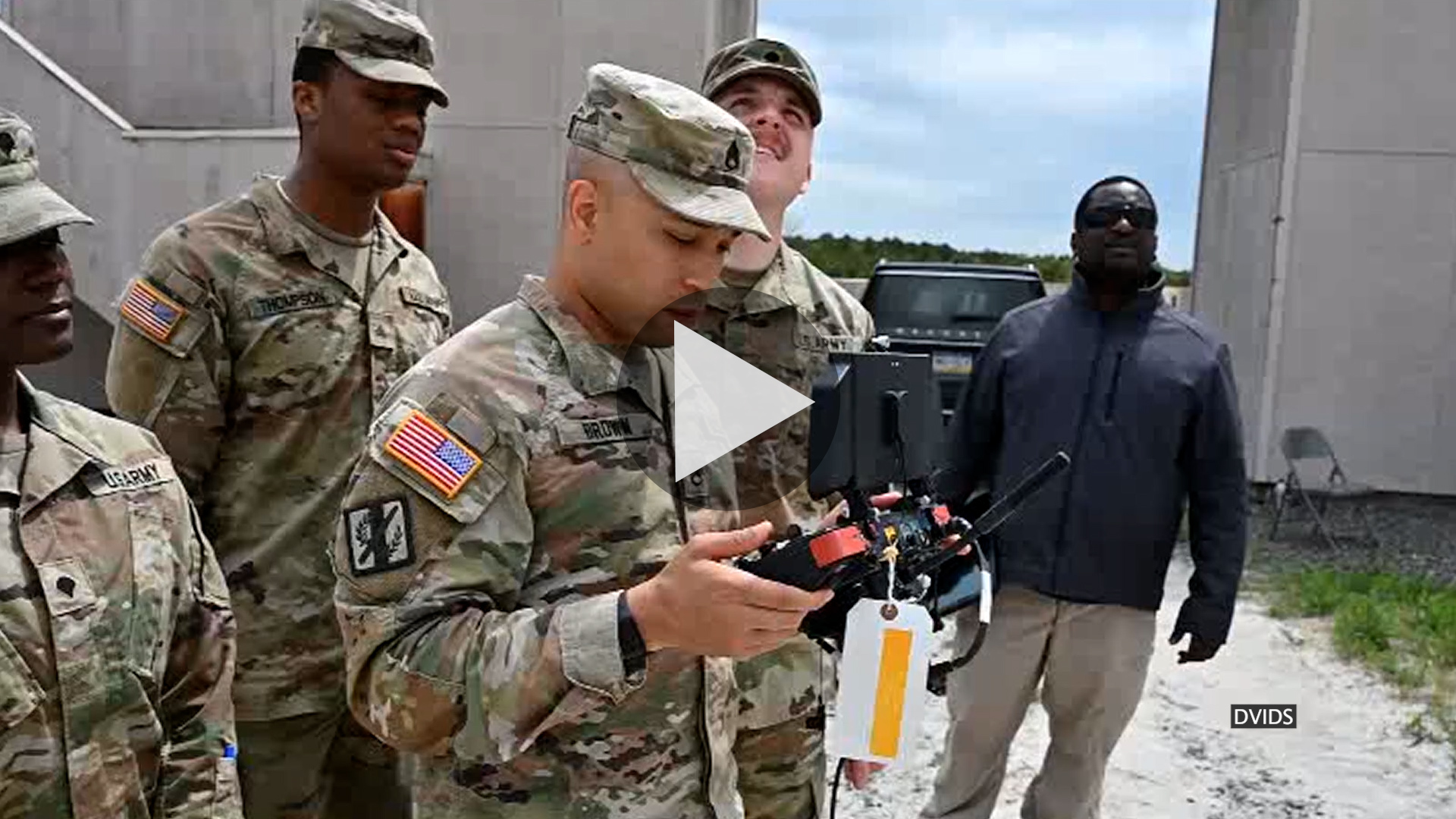The L3Harris logo is seen on the floor of the 2022 Air Force Association conference in National Harbor, Maryland. (Justin Katz/Breaking Defense)
WASHINGTON — Too many buyers have been low-balling L3Harris for the company’s non-defense businesses, leading the contractor to hold off on selling those parts of its portfolio until better bids arise, according to L3Harris Chief Executive Officer Chris Kubasik.
“To the extent we can get a good price for what we’ve identified as non-core [businesses], we’ll do it. But too many of the offers are coming in low and people think we’re desperate to sell, and I can assure you we’re not,” Kubasik told investors today during the company’s first quarter earnings call for 2024. L3Harris today outperformed investor expectations for the first quarter and raised its outlook for revenue and expected earnings per share, though it is moving to cut about five percent of its workforce, Reuters previously reported.
“So we need to get better valuations before we proceed on other transactions. Otherwise, we’ll keep it around the business and go forward from there,” Kubasik said.
L3Harris has been gradually divesting non-defense parts of the company to reorient itself as a purely defense-focused contractor. In recent months, the company has announced two key sales: an $800 million deal for its commercial aviation solutions (CAS) business and a $200 million agreement for its antenna business. Kubasik said today that the CAS sale should close in the second half of this year — a slight delay from previous projections for the first half of the year — while the antenna deal should complete in the second quarter of 2024.
The two sales, and others the company is seeking, are further helping the contractor raise funds to pay down debt that’s in part associated with some key acquisitions. In January 2023, L3Harris paid nearly $2 billion for Viasat’s Link 16 product line, setting the company up as a supplier for a critical tactical data link widely used by the US and NATO allies. And in July, L3Harris overcame regulatory scrutiny to close a $4.7 billion deal for Aerojet Rocketdyne, one of two key manufacturers in the US that supplies solid rocket motors.
And though both deals were pricey, they’re set to be well worth the investment, according to Kubasik. Through the Link 16 deal, L3Harris now has “footprints on 20,000 platforms,” Kubasik said today, a number he expects to grow. For example, the Space Development Agency’s (SDA) efforts to create a satellite constellation connecting sensors and shooters all the way from the ground up to space, known as the transport layer, requires Link 16 connectivity that SDA recently demonstrated.
RELATED: L3Harris looking to ‘aggressively grow’ Aerojet Rocketdyne as newest business unit
Going forward, Kubasik said he expects L3Harris “to be on all the teams providing Link 16-type capability in space” as a merchant supplier, which would entail hundreds of small satellites. L3Harris also builds satellites of its own, and has scored successive wins for SDA’s missile tracking satellites. An SDA spokesperson did not immediately respond when asked for details on L3Harris’s role in providing Link 16 capabilities.
And, with demand for solid rocket motors continuing to surge, Kubasik said “double-digit [topline] growth” over a five-to-seven year timespan “does not seem unreasonable to me.” Still, Kubasik emphasized proper investments need to be made to increase capacity at Aerojet, which has recently struggled to fulfill its orders.
“We have to, of course, invest in the capacity,” Kubasik said, emphasizing that investment is needed in lower-tier suppliers for equipment like igniters, nozzles and cases. L3Harris has made many of its own investments in the supply base, Kubasik said, noting that late deliveries from Aerojet have dropped by 20% since L3Harris took ownership.
“I think by the time we get to 2026, 2027, if all stays as is, [the Aerojet purchase] is going to really turn out to be a great acquisition,” he said.


